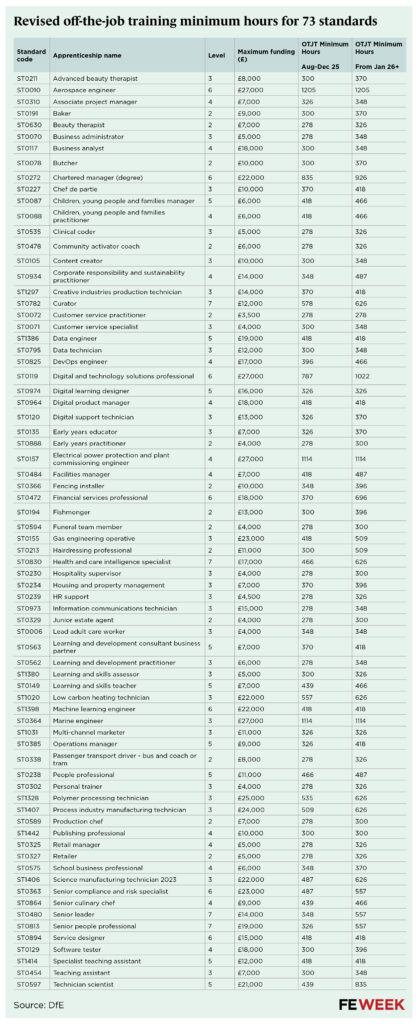An historic adult learning centre has been told to consider a merger after “inadequate” financial oversight led to a surprise funding shortfall and a government bailout.
London’s Mary Ward Settlement, now known as the Mary Ward Centre, received a £500,000 emergency loan from the government after realising its cash reserves were “significantly lower than expected” in January this year.
The centre, which teaches more than 2,500 adult learners each year, was placed under financial intervention in April and has now been told to evaluate whether it is “sustainable” as a standalone institution.
It comes two years after the centre moved its adult education centre from central London’s Bloomsbury – where it had been based for more than a century – to a purpose-built centre in Stratford, in east London, at a cost of at least £14 million.
According to an FE Commissioner report, Mary Ward Centre was surprised by low cash levels due to “poor budgeting and inadequate financial oversight”.
In July 2024, the centre forecasted a ‘good’ financial health rating for the 12 months ahead, but a month later ended the academic year with a deficit on an overall adult education income of £3.9 million.
Its most recent accounts show that immediately available cash reserves fell to £214,000 in 2023-24, down from £3.5 million in 2018-19, with “higher than expected” costs of repaying commercial debt from the move to east London.
‘Unrealistic forecasts’
The FE Commissioner assessment, led by FE Commissioner Shelagh Legrave, found the centre’s budget included “unrealistic income and expenditure forecasts” that were not based on a “comprehensive curriculum plan”.
The centre’s move to east London was impacted by “planning and funding delays” to converting a three-storey office block into a five-storey learning centre during the pandemic – although it is unclear how far the project went overbudget.
The emergency government loan is to be drawn down in two payments between April and October this year, and is repayable by October 2026, “subject to an affordability review”.
The adult learning centre is a so-called specialist designated institution and part of a charity, the Mary Ward Settlement, which was founded in 1892 with the aim of promoting social justice and equality.
At a combined cost of about £2 million, Mary Ward Settlement also separately manages a free legal advice service and the Blackfriars Settlement, a community service for the elderly and people with mental health issues.
According to an Ofsted inspection in January this year, which rated the centre ‘good’ in overall effectiveness, it offers courses up to level 2 courses in visual and performing arts, English, maths, and English for speakers of other languages (ESOL) and outreach courses for new learners.
‘Inadequate’ budget oversight
A key contributor to the Mary Ward Centre’s financial difficulties was a “lack of robust management information” about student numbers and finances, which were compiled “largely manual” processes, the FE Commissioner found.
Her report added: “Despite the significant financial and cashflow challenges, management accounts are only produced on a quarterly basis; this is inadequate and has contributed to financial difficulties.”
The commissioner’s team found that trustees had expertise to challenge senior leaders, some “did not fully appreciate” the urgency of the centre’s financial problems.
Board minutes did not “clearly” record whether accounts were scrutinised on a quarterly basis or how they were tracking and monitoring agreed actions.
There were also sometimes “blurred” boundaries between trustees and executives.
A difficult move
Alongside the cost of relocating, the centre has also been “challenged to connect with its new demographic audience” in east London, who are more likely to need ESOL training and less willing or able to pay fees, the FE Commissioner said.
The report added: “It is taking time to adapt the offer for the new location, and this has meant that learner numbers, commercial and tuition fee income have been lower than expected contributing to the financial difficulties”
Mary Ward’s accounts suggest at least £14 million was spent on the building project and relocation, funded by £5.7 million in grants from the Mayor of London’s Skills for Londoners Capital Fund and commercial loans of about £3.5 million.
It bought the east London site for £7.1 million in 2018.
Orders to improve
The FE Commissioner’s report, completed in April, made seven recommendations including that the centre should take “swift action” to develop a business and financial recovery plan that will show whether there is “scope” to reach a “sustainable operating position” by 2026-27.
A structure and prospects appraisal and single improvement plan are also due to be completed by the commissioner this month, that will “consider the various strategic options” open to the college – including merging with another institution.
The FE Commissioner report said: “There is an urgent need to develop a robust business plan to confirm whether MWS may be sustainable in future as a standalone institution.”
The centre should also ensure it has “adequate and appropriate” leadership capacity, a “fully costed curriculum plan” and should start producing monthly management accounts that include cashflow forecasts and KPI monitoring.
A spokesperson for Mary Ward Settlement said they are “grateful” for the Department for Education’s support and “confident” that the charity will return to a good financial footing.
They added: “Mary Ward Settlement is already some way through implementing its strategic recovery plan and continues to act upon and complete recommendations within the commissioner’s report that will also allow us to build firm foundations in our new home.
“This includes reviewing our financial management through monitoring expenditures and renegotiating contracts whilst retiring legacy systems and implementing a new management information and finance system which will create efficiencies and provide the accurate information that we need.”

